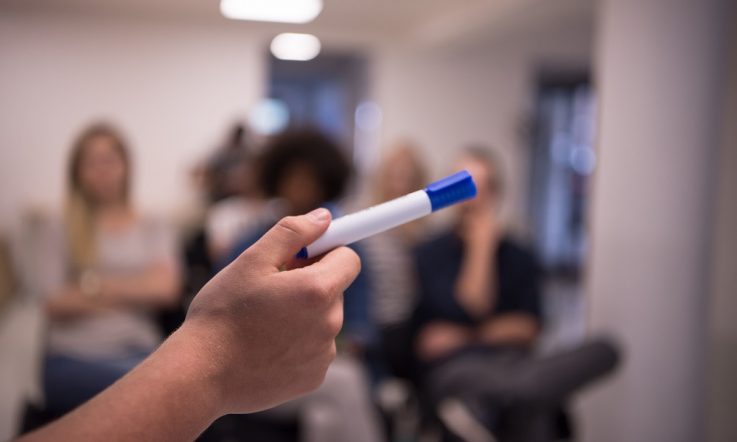In Teacher's latest reader submission, Year 9 Learning Leader Rachael Williams discusses student agency and shares details of a project at her own school that offers teens a learning experience that's relevant to their own lives and gives them the opportunity to work with community experts.
Schools often labour over the construction of a curriculum that matters but, ultimately, any decisions about what should or should not be included are usually made by adults. Surely teens are worthy of this responsibility, at least some of the time?
Young people deserve learning experiences that build agency, ‘a sense that it's possible to reshape the way things are by directing one's actions purposefully (Tishman & Clapp, 2017, p.58)'.
Neuroscientist, Mary Helen Immordino-Yang suggests that ‘taking on messy, real world problems in multidimensional ways makes learning real and emotionally connected for students (Varlas, 2018)'. Certainly, with a generation of teens more connected to each other and the world than ever before, there is nowhere to hide the messy, real world.
Agents of their own learning
It is easy to think that we understand what it means to be a teenager, having been one ourselves, but how can we really understand what most concerns our adolescent students in 2019, unless we ask them?
With this in mind, the Teen Inquiry Project teaching team at Ballarat Grammar School in Ballarat, Victoria, planned to offer their cohort of 170 Year 9s a learning experience truly relevant to the lives of teenagers. Students responded to a survey asking them to identify issues that mattered to them.
The project was delivered as part of an integrated curriculum, addressing learning outcomes in Health and English, for the first time in 2017 and further developed and expanded for 2018. While health curricula in schools often focus on risk-taking behaviour relating to sex, drugs and alcohol, the students responding to our survey asked to learn more about sleep, stress, social media and mental health.
Teenagers need supportive adults, no matter how reluctant they might be to admit it. They need us, not to direct their every move, but to offer the support they need to create the better world they imagine. Dr Lyn Mikel Brown suggests that adults working with youth must respect their experiences and assist by scaffolding, rather than taking over (Harvard Graduate School of Education, 2017).
Scaffolding and support
The Teen Inquiry Project ran for eight weeks. Students began by finding out as much as they could about how their selected issue affects teenagers. They read news articles, listened to podcasts and examined scholarly journals. We taught them how to unpack complex texts and, with careful scaffolding, showed them what a real literature review looks like. Students were encouraged to look for gaps or surprises in the research. What information was missing? What was unusual and worth investigating further? We spent time developing student understanding of what makes a good research question.
At the end of the first two weeks, every student had developed specific knowledge about the issue they had selected and this changed the classroom dynamic. Students who sometimes found it difficult to contribute, were able to share their initial discoveries and carefully crafted research questions with peers. They listened to each other and gave constructive feedback.
In order to answer their research questions, students conducted surveys of their peers and interviewed experts. We spent time building their skills and understanding of ethical and effective research methodology and more time helping them to analyse the results. Students sifted through their data and produced infographics to share their findings. They interviewed neurosurgeons, psychologists and experts in various fields. Such was the quality of the students' interactions with experts that some contacted the school to let us know how impressed they were with the background knowledge students had built and the quality of the questions they asked.
Shifting student thinking
Students need authentic ways to respond to the real things, big and small, that happen in their own lives. Schools can play a role in shifting student thinking from problem to solution.
When we encourage youth to notice injustice, we must also help them to consider how things could be different (Harvard Graduate School of Education, 2017). Without hope for change, a curriculum exploring social justice issues presents problems as miserable endpoints. Schools must teach students that they have the capacity to not only develop understanding in relation to an issue, but to use that understanding to propose viable solutions. This kind of prosocial behavior increases students' capacity for empathy and critical thinking (Zhang-Negrerie, 2016).
To ensure students in the Teen Inquiry Project were able to take action in response to the issues they had explored, the school engaged in a collaborative partnership with Crazy Ideas College. The students were asked to consider the real problems they had uncovered in relation to their selected issue and to create viable solutions.
Students developed and tested prototypes and, with coaching and support, prepared their pitches. At the final event, students pitched their ‘crazy good' ideas to stakeholders within the community who work with teens experiencing such issues every day. For example, students presenting solutions in relation to stress pitched to Headspace and, around the building, groups of students pitched to varied other professionals, sharing gems like the ‘Back-pocket Mum' app that utilises mobile technology to help teens navigate tricky peer pressure situations.
Student perceptions of their agency
Our experience working with students on the Teen Inquiry Project made one thing clear – in learning about things that matter to them, students discover that they themselves also matter.
We measured the students' perceptions of their own agency at the beginning of the project, throughout the project and then eight weeks later, after they had pitched their solutions or ‘crazy good ideas' to a panel of experts and stakeholders within our community.
Students self-reported a 10-13 per cent average increase in response to several ‘I can' statements related to agency, developed with guidance from Albert Bandura's (2006) work on self-efficacy. The statements we used included: ‘I can work through any learning challenge on my own'; and, ‘I can learn about and understand complex issues that matter in the real world'. In a final reflection, one student declared that ‘anything is possible' and another wrote ‘I am capable of creating real world solutions that might be used in the community'.
Through my involvement in this project, I've learned, among other things, that agency is a powerful mix of self-belief and hope. Teenagers need to believe in themselves as changemakers and for the adults in their lives to believe in them too.
The current cohort of Ballarat Grammar Year 9 students have just begun their Teen Inquiry Project journey for 2019. In recent weeks, they have reached out to community experts around the world, grappling with the issues most relevant to them and are beginning to believe that they can reshape the world, making it a better place for all of us.
References and further reading
Bandura, A. (2006), Guide for Constructing Self-efficacy Scales, in F Pajares (ed.), Self-efficacy Beliefs of Adolescents, Information Age Publishing: US.
Harvard Graduate School of Education. (2017). Girl Power – Raising Female Activists [Podcast]. Retrieved June 2019, from https://www.gse.harvard.edu/news/17/06/harvard-edcast-girl-power-raising-female-activists
Tishman, S., & Clapp, J. (2017). Building Students' Sense of Agency. Educational Leadership, 58-62.
Varlas, L. (2018). Emotions Are the Rudder That Steers Thinking. Education Update, 60(6), 1-3.
Zhang-Negrerie, D. (2016). Personal Matter: Personality Traits. In Y. Zhao, Counting What Counts: Reframing Education Outcomes. Bloomington: Solution Tree.
Zhao, Y. (2016). Counting What Counts: Reframing Education Outcomes. Bloomington, Solution Tree.
In the Teen Inquiry Project, students were asked to identify issues that mattered to them.
How often do you ask students about the issues that concern them?
How does this inform support and intervention programs at a school level, and planning in relation to teaching and learning topics?



